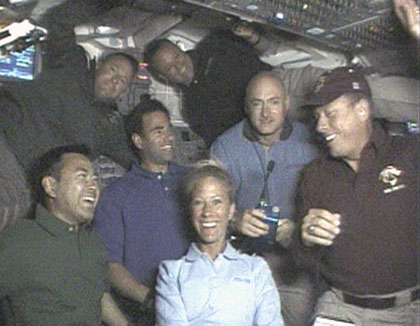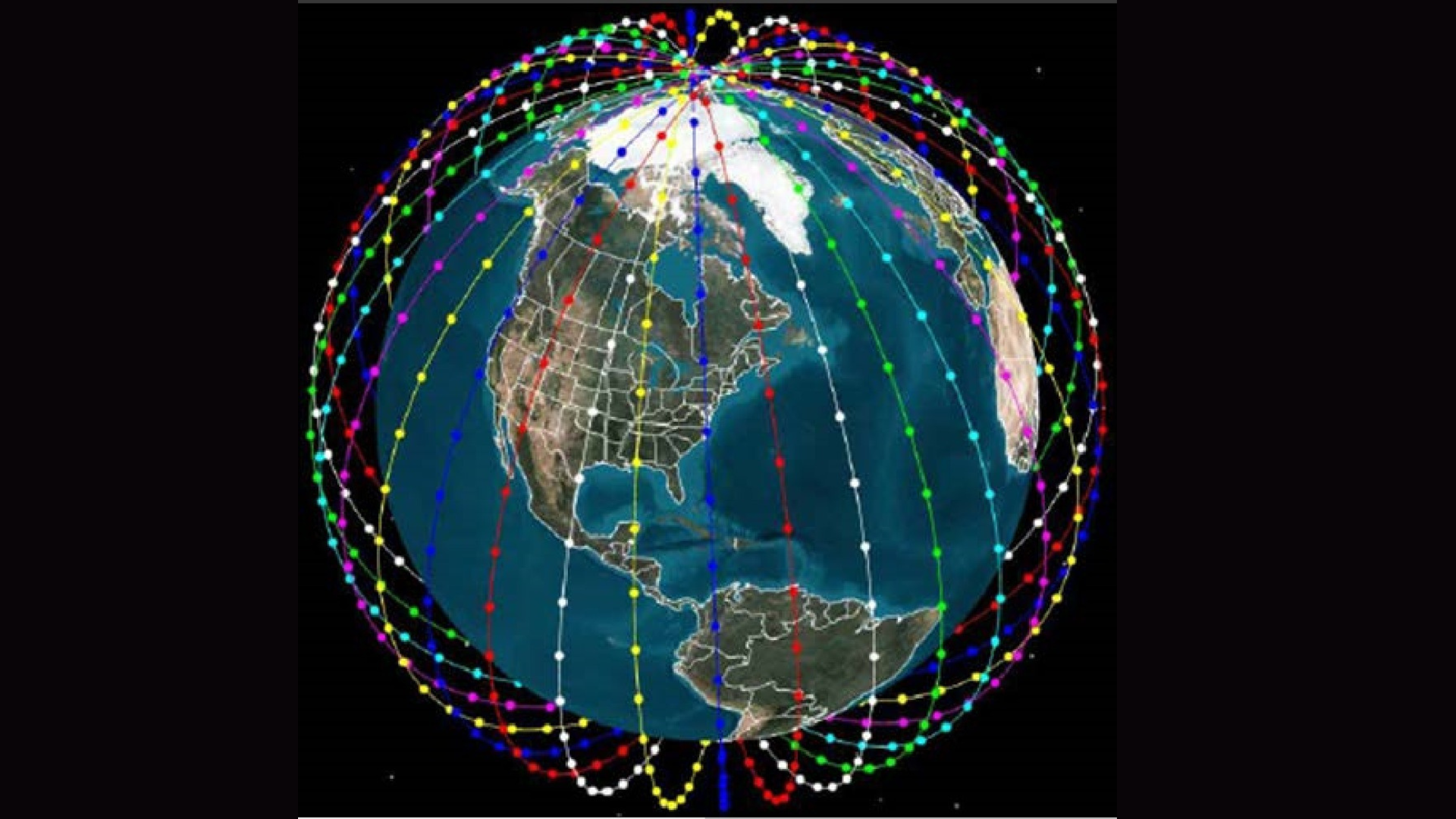Shuttle Discovery to Dock at Space Station Today

Breaking space news, the latest updates on rocket launches, skywatching events and more!
You are now subscribed
Your newsletter sign-up was successful
Want to add more newsletters?

Delivered daily
Daily Newsletter
Breaking space news, the latest updates on rocket launches, skywatching events and more!

Once a month
Watch This Space
Sign up to our monthly entertainment newsletter to keep up with all our coverage of the latest sci-fi and space movies, tv shows, games and books.

Once a week
Night Sky This Week
Discover this week's must-see night sky events, moon phases, and stunning astrophotos. Sign up for our skywatching newsletter and explore the universe with us!

Twice a month
Strange New Words
Space.com's Sci-Fi Reader's Club. Read a sci-fi short story every month and join a virtual community of fellow science fiction fans!
HOUSTON - The space shuttle Discovery is set to finally deliver thegiant Japanese Kibo lab to its intended home today on the International SpaceStation (ISS).
Discovery is slated to dock with the ISS at 1:54 p.m. EDT (1754 GMT)this afternoon carrying the newtour bus-sized module, a $1 billion laboratory more than 20 years in themaking.
?The Kibo module is beautiful, it?s just a beautiful piece ofengineering,? Discovery mission specialist Mike Fossum said during an interviewSunday from space. ?The Japanese people are very proud of that and they have aright to be.?
Commanded by veteran astronaut Mark Kelly, Discoverylaunched Saturday from NASA?s Kennedy Space Center in Cape Canaveral, Fla.,on a two-week construction mission to the space station.
?It?s everything [I expected] and more,? mission specialist KarenNyberg, a first-time spaceflyer, said duringa televised interview. ?It?s been a blast? Nothing in my experiencecompares.?
Before catching up with the orbiting laboratory, Kelly will pilot theshuttle through a 360-degree backflip about 600 feet (183 meters) below theorbital station.
The move, called a rendezvous pitch maneuver, will allow astronautsaboard the station to take high resolution pictures of the shuttle?s heat-resistantunderbelly to search for signs of damage. The images, along with data from apreliminary inspection using Discovery?s robotic arm and a later scan using alaser-tipped boom, will allow engineers to determine if the shuttle?s heatshield is in good health.
Breaking space news, the latest updates on rocket launches, skywatching events and more!
After Discovery docks with the space station, the astronauts plan toopen the hatches between the orbiter and the station to begin about 10 days ofjoint operations.
?Oh, docking day?s a big day,? mission specialist Mike Fossum said in apreflight interview. ?Once we get docked, it takes about an hour to get thehatches open. We?ll barrel across and start messing up the nice neat spacestation.?
In addition to dropping off Kibo, the space shuttle will deliver thenewest crewmember of the orbital laboratory, Greg Chamitoff. Chamitoff willrelieve U.S. astronaut Garrett Reisman as a flight engineer onboard, whileReisman is scheduled to journey home to Earth with Discovery on June 14.
The two crewmembers will officially swap places when they exchangecustom-fitted seat liners on the Soyuz spacecraft currently docked at the spacestation. When this switch - slated for 4:57 p.m. EDT (2057 GMT) - occurs,Chamitoff will officially become a member of the ISS Expedition 17 crew.
?Expedition 17 is actually a big transition point for the space stationprogram because we?re going to have all the international partners involved atthis point,? Chamitoff, a first-time spaceflyer, said before launch. ?TheJapanese module will be on board as well as the Columbus, European module.?
Discovery will also be bringing a third, eagerly-awaited addition to thespace station: a new pump forits broken toilet. The orbital commode has been acting up recently, workingfor solid waste but not for liquid, and often forcing two-astronaut teams tomanually pump it for 10 minutes in order to flush. Mission planners hope the replacementpump will restore the loo to working order.
At the end of the day, Discovery mission specialists Mike Fossum and RonGaran will begin their campout in the space station?s lower-pressure airlock inpreparation for the mission?s first spacewalk on Tuesday.
NASA is broadcasting the planned launch of Discovery'sSTS-124 mission live on NASA TV on Saturday. Click here for SPACE.com'sshuttle mission updates and NASA TV feed.
- New Video: STS-124 Mission Preview ? Delivering Kibo
- Video: STS-123 Mission Rewind: Launch to Kibo Attic Delivery
- Complete Space Shuttle Mission Coverage

Clara Moskowitz is a science and space writer who joined the Space.com team in 2008 and served as Assistant Managing Editor from 2011 to 2013. Clara has a bachelor's degree in astronomy and physics from Wesleyan University, and a graduate certificate in science writing from the University of California, Santa Cruz. She covers everything from astronomy to human spaceflight and once aced a NASTAR suborbital spaceflight training program for space missions. Clara is currently Associate Editor of Scientific American. To see her latest project is, follow Clara on Twitter.
